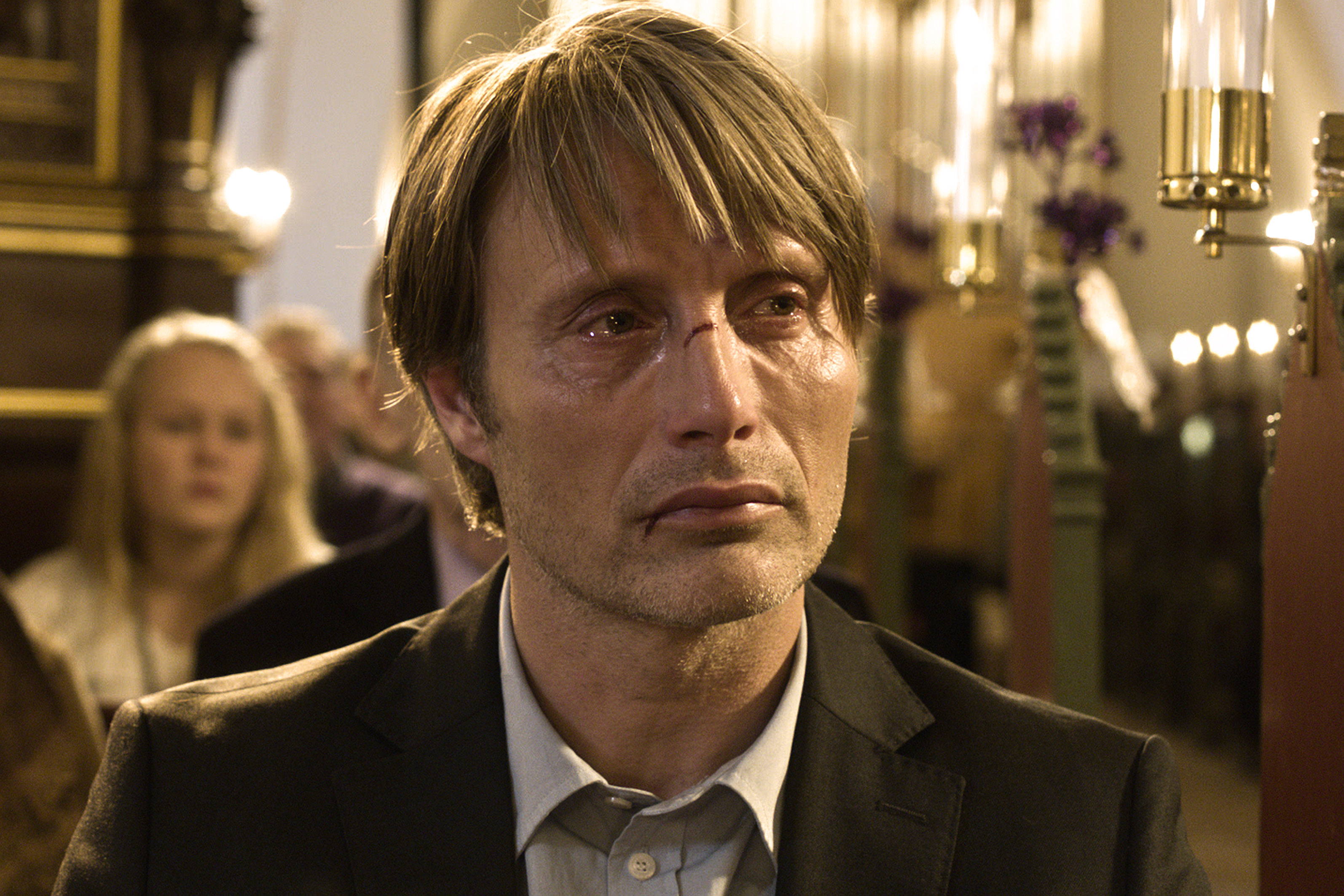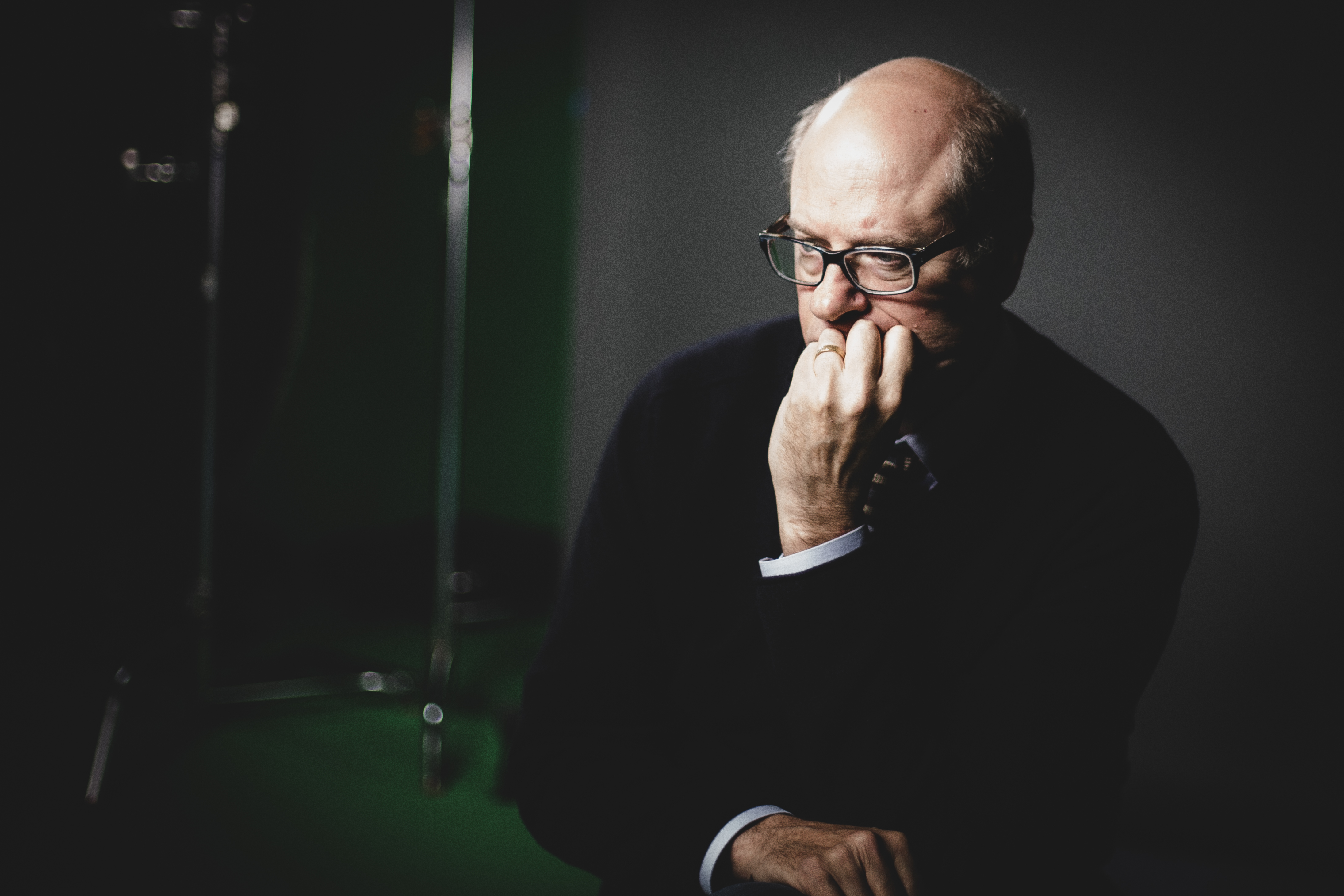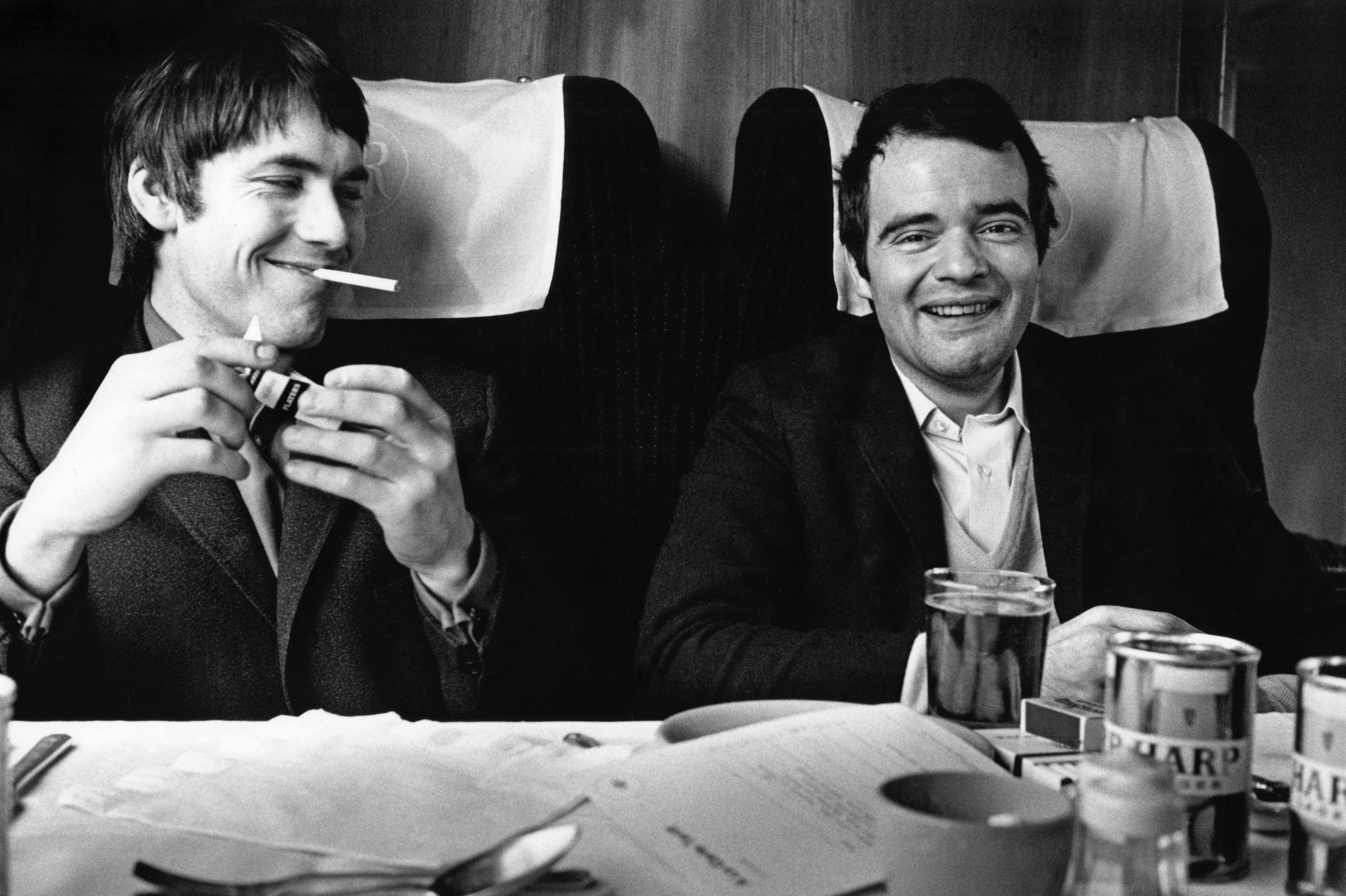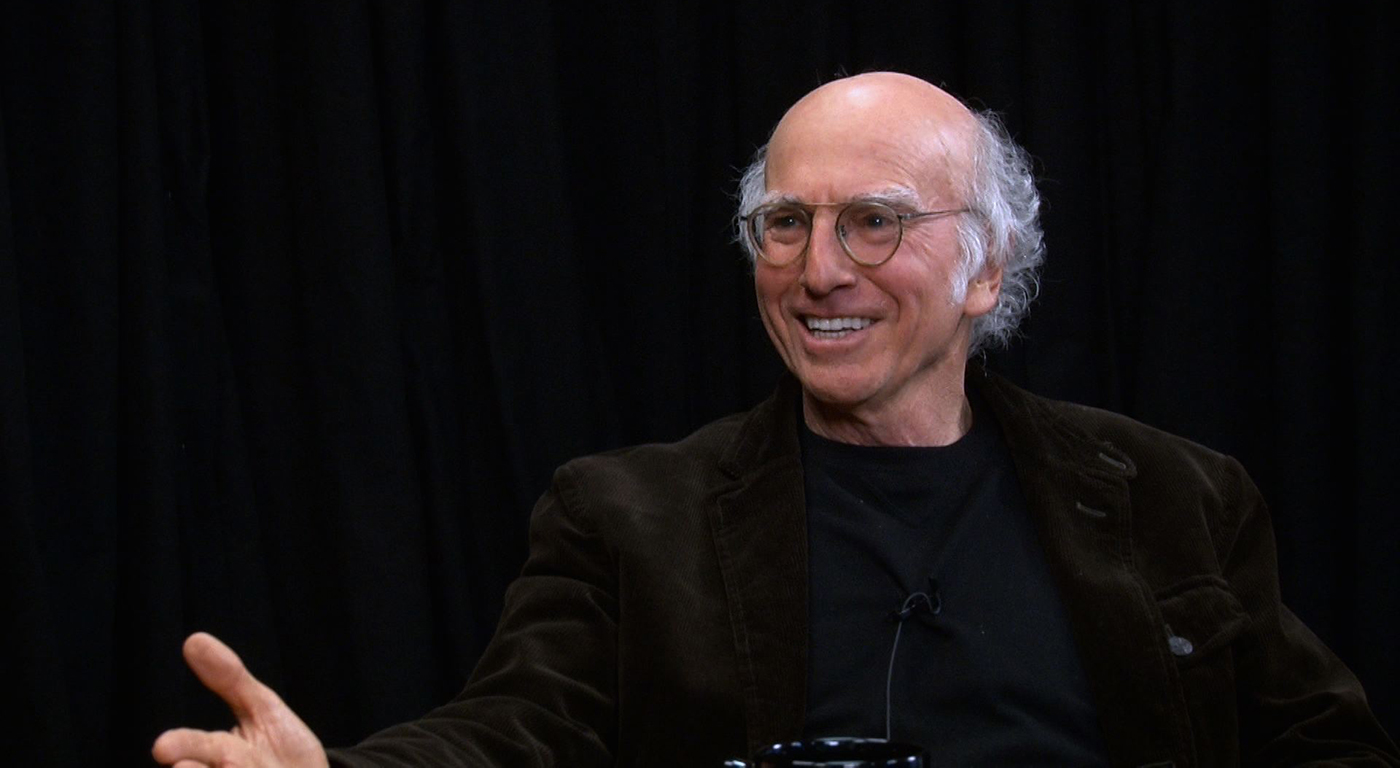The Hunt
Opens Fri., Aug. 16 at Guild 45th. Rated R. 111 minutes.
Mads Mikkelsen plays a serial killer on TV’s Hannibal, but in Thomas Vinterberg’s study of rumors and self-righteous hysteria in a Danish village, he’s a compassionate preschool teacher who falls under wrongful suspicion of child sexual abuse. Adorable little Klara (Annika Wedderkopp) lives under a cloud of anxiety at home, where the verbal scuffles of a troubled marriage makes her shrink in dread. Mikkelsen’s Lucas, a trusted friend of the family, is the most stable and comforting adult in her life, and she clings to him like a lifeline.
When Klara pours out a confused but alarming string of inappropriate phrases she heard spoken by teenage boys, mixed with misguided anger toward Lucas, alarm bells go off. The police investigation is leaked to the public before it’s even begun, then suspicion about Lucas spreads like a virus through the community. Everyone assumes he’s guilty.
Vinterberg works in the same key of personal transgression and raw, inchoate emotion that made his 1998 The Celebration so effective. Onetime friends suddenly treat Lucas like a convicted war criminal somehow free on a technicality; it’s open season for vigilantism without consequences. That a community of hunters should treat Lucas as their prey is a powerful metaphor, even if the portrait of official conduct is well short of realism. (The citizenry, school, and government all seem bound in a malign knot of indifference or gross negligence.) I can’t help reflecting on the far more ambiguous and complicated reality of Andrew Jarecki’s 2003 documentary Capturing the Friedmans, which appears to be a direct influence on Vinterberg and his co-writer, Tobias Lindholm.
But those are quibbles compared to the heat, rage, and fear of the main performances. The gentleness in Lucas hardens under abuse, burns with the helpless fury of betrayal, and slips into a kind of martyred masochism. Meanwhile, his furiously loyal son (Lasse Fogelstrøm) feels like the world has turned on his father. And even as the town is torn apart, Vinterberg never forgets Klara. The adults won’t explain a thing, but she figures out it’s her fault. Wedderkopp’s nervous slide from sunny affection to anxiety, dread, and guilt are as piercing and honest as anything created by Mikkelsen. Vinterberg traffics in primal emotions. Nobody is left untouched here, least of all the audience.
film@seattleweekly.com








